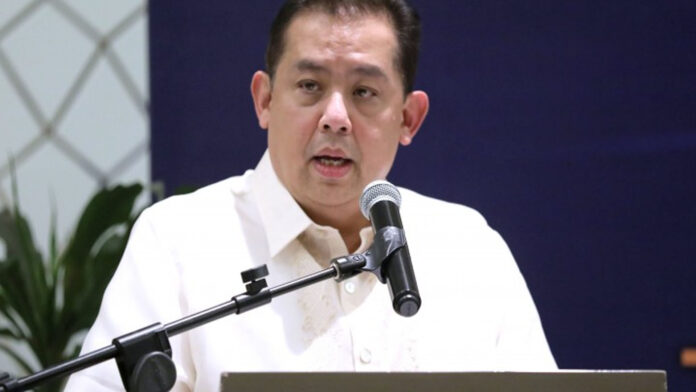Speaker Martin Romualdez on Monday emphasized the need to plug the loopholes in the Philippine tax code to prevent instances of large-scale tax fraud that deprive government coffers of revenues.
Romualdez made this remark after the House of Representatives overwhelmingly approved House Bill 8144 which seeks to update the country’s tax code “to deter schemes that defraud the government of billions of pesos in taxes”, which are considered the lifeblood of the nation.
Approved by 276 House members on the third and final reading, the bill seeks to define the new crime of tax racketeering and imposing heavy penalties on offenders.
“We have to plug loopholes in the law to arrest the hemorrhage of tax revenue that should accrue to government coffers, instead of going to the pockets of a few criminally-minded individuals,” he said.
The measure defines tax racketeering as a crime perpetrated by “any person who engages in any coordinated scheme or operation to evade or defeat any tax” imposed under the National Internal Revenue Code through the fraudulent use of receipts, returns and other records, with a minimum amount of PHP10 million in taxes evaded.
“These schemes are cleverly used by syndicates and bogus businesses. They may not be covered by the definition of tax evasion, which the tax law penalizes,” Romualdez said.
The measure states that the offender shall suffer imprisonment of 17 years to 20 years in addition to other penalties provided by law.
Conviction or acquittal would not be a bar to the filing of a civil suit for the collection of taxes.
If the violator is a corporation, nongovernment organization, association, cooperative or single proprietorship, the penalty shall be imposed on its officers or employees and individuals without whose participation the violation could not have been committed.
Accomplishes or persons who cooperate in the commission of the offense shall, in addition to other penalties provided by law, suffer imprisonment of 10 years to 17 years.
Persons who, having knowledge of tax racketeering, take part subsequent to its commission, including profiting from it, shall suffer imprisonment of six years to 10 years.
Meanwhile, any public officer who aids and abets the commission of tax racketeering shall face perpetual disqualification from public office.
Albay Representative Joey Salceda, author of the bill, said up to PHP100 billion in tax revenue is lost every year to tax evasion and tax racketeering activities involving the use of fake receipts and similar documents.
Salceda said such “nefarious activities” must be defined and criminalized since these constitute as economic sabotage, following the doctrine that “taxes are the lifeblood of the state.”
The bill proposes to include the acts of distributing, acquiring, using, or aiding in the use of unauthorized, fake or falsified revenue official receipts, sales invoices, commercial invoices, letters of authority, tax debit memoranda and other accountable forms as punishable.
These acts, including willful attempts to evade or defeat any tax, shall be penalized with a fine of PHP5 million to PHP10 million (up from PHPP50,000 to PHP100,000 under the present law) and imprisonment of six years to 10 years (increased from two years but not more than six years).
If the offender is a certified public accountant, his professional license shall be revoked upon conviction. (PNA)


